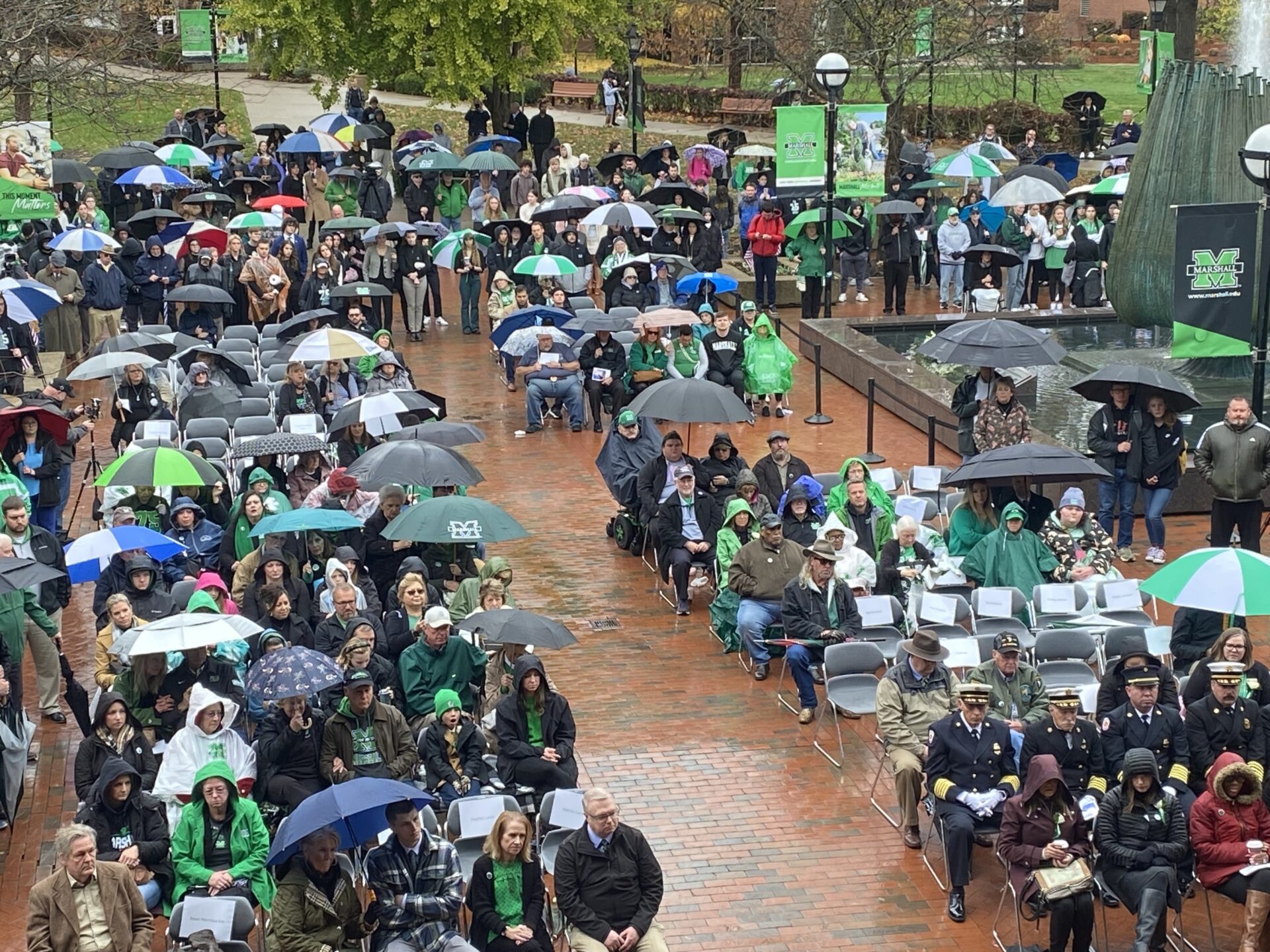Every Nov. 14, for 54 years, Marshall University and the Huntington community have remembered and honored the 1970 football team, and all of the 75 who perished that year in a plane crash.
For more than half a century, these annual memorial events have honored revered memories. But they have also inspired a legacy of positive personal and physical growth.
The Marshall alma mater always closes the annual memorial service, including the verse that says, “May thy lamp be ever bright, guiding us to truth and light; as a beacon o’er dark water.”
For the hundreds gathered on the Marshall campus for the 2024 memorial, the legacy of those who died on that dark and rainy night has forged a bright beacon of personal pride and university progress.
This year’s memorial service was the fourth for Parkersburg junior Wade Sullivan, who likened Marshall’s post plane crash evolution to the mythical rising phoenix.
“We almost lost our football program after this plane crash 54 years ago,” Sullivan said. “There’s a song somewhere. It says, ’We rose from the ashes,’ and we really did,” he said.
“We’re two time national champions in football, national champion in soccer, academics have gone through the roof. Enrollment has gone through the roof. Marshall has grown from this tragedy.”
Nearly every year, a family member of one of the 75 who perished serves as memorial keynote speaker. Marshall soccer player and graduate Michael Barbera said his mother was just 14 when she lost both parents, Joe and Peggy Chambers. Dr. Joseph Chambers was the team physician.
“My mom and her sisters were resilient,” Barbera said. “They had to grow up really, really fast. My mom told me that she was told by her sisters that she needed to be strong.”
Barbera’s keynote message was for every incoming freshman to live the Marshall legacy of remembering his grandparents’ lives and emulating his mother’s strength.
Photo Credit: Randy Yohe/West Virginia Public Broadcasting
“You obviously get a new set of students, a new set of athletes that come in,” he said. “They need to know that they’re playing for the 75 every time they put on a jersey. That it’s on for the kids that go to school here. A lot of individuals lost their hopes and their dreams, and you know, they have to carry that on their back as well.”
A 1986 Marshall graduate, school president Brad Smith said the legacy of the 75 fuels a growing fire of university progress.
“I think with every year, the meaning grows stronger,” Smith said. “It reminds us, not only of those that we lost, but reminds us of how much we’ve advanced together. I think it reinforces the most important word in our rally cry, ‘We are Marshall,’ and so each and every year, it just makes our bond that much stronger. We stand on the shoulders of giants. Their sacrifice became our reason.”
At every memorial they read the names of the 75, including 19-year-old sophomore football player Stuart Cottrell. His sister, Sally Cottrell, annually comes to campus from her Florida home, to honor her brother and the rest. But she didn’t always come. The movie “We Are Marshall” came out in 2006, about the school’s struggle to rebuild itself after a devastating tragedy.
“I thought that Marshall had forgotten and moved on, because I didn’t know,” Cottrell said. “I lived in Florida. Nobody ever told me anything. And then I lived in Georgia, and then I found out about the movie, and then I found out that, yeah, they do care, and they do remember. I think it’s wonderful that that tragedy was an impetus for people to want to make things better and celebrate just the campus itself and the community.”
A telling alma mater verse says, “may her children fail her never, true to her beacon flame.” For the Marshall community, the honor and memory of the 75 lost in that fiery plane crash looks to serve as a guiding beacon going forward.
